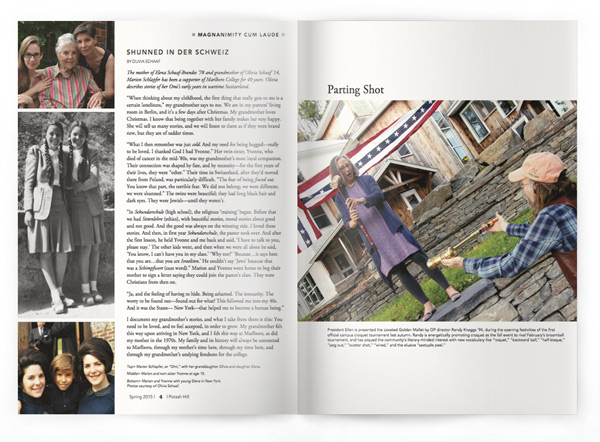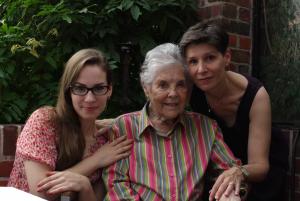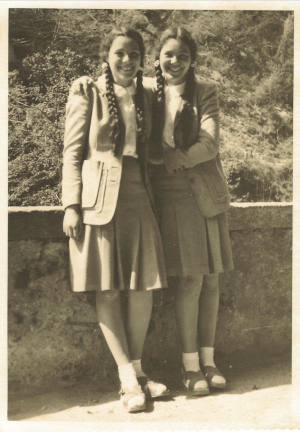Magnanimity Cum Laude

Shunned in Der Schweiz
By Olivia Schaaf
The mother of Elena Schaaf-Brandes ’78 and grandmother of Olivia Schaaf ’14, Marion Schlapfer has been a supporter of Marlboro College for 40 years. Olivia describes stories of her Omi’s early years in wartime Switzerland.

“When thinking about my childhood, the first thing that really gets to me is a certain loneliness,” my grandmother says to me. We are in my parents’ living room in Berlin, and it’s a few days after Christmas. My grandmother loves Christmas. I know that being together with her family makes her very happy. She will tell us many stories, and we will listen to them as if they were brand new, but they are of sadder times.
What I then remember was just cold. And my need for being hugged—really to be loved. I thanked God I had Yvonne.” Her twin sister, Yvonne, who died of cancer in the mid-’80s, was my grandmother’s most loyal companion. Their connection was shaped by fate, and by necessity—for the first years of their lives, they were “other.” Their time in Switzerland, after they’d moved there from Poland, was particularly difficult. “The fear of being found out. You know that part, the terrible fear. We did not belong; we were different; we were shunned.” The twins were beautiful; they had long black hair and dark eyes. They were Jewish—until they weren’t.

“In Sekundarschule (high school), the religious ‘training’ began. Before that we had Sittenlehre (ethics), with beautiful stories, moral stories about good and not good. And the good was always on the winning side. I loved these stories. And then, in first year Sekundarschule, the pastor took over. And after the first lesson, he held Yvonne and me back and said, ‘I have to talk to you, please stay.’ The other kids went, and then when we were all alone he said, ‘You know, I can’t have you in my class.’ ‘Why not?’ ‘Because…it says here that you are…that you are Israeliten.’ He couldn’t say ‘Jews’ because that was a Schimpfwort (cuss word).” Marion and Yvonne went home to beg their mother to sign a letter saying they could join the pastor’s class. They were Christians from then on.
“Ja, and the feeling of having to hide. Being ashamed. The insecurity. The worry to be found out—found out for what? This followed me into my 40s. And it was the States— New York—that helped me to become a human being.”
I document my grandmother’s stories, and what I take from them is this: You need to be loved, and to feel accepted, in order to grow. My grandmother felt this way upon arriving in New York, and I felt this way at Marlboro, as did my mother in the 1970s. My family and its history will always be connected to Marlboro, through my mother’s time here, through my time here, and through my grandmother’s undying fondness for the college.
